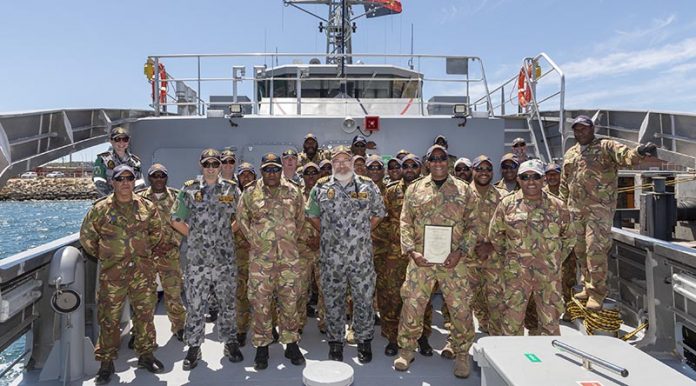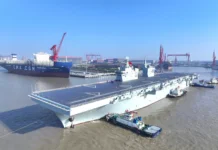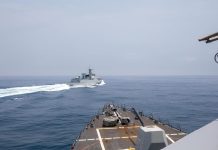
By Sam Roggeveen*
The “Pukpuk” mutual defence treaty signed by Australia and Papua New Guinea on 6 October 2025 is a welcome development and a milestone in the more activist Pacific Islands policy that Australia has pursued since the Turnbull government. (From: The Interpreter. The Lowy Institute.)
In the media coverage of the signing, attention has naturally been given to the limits of the treaty. Most notably, Prime Minister James Marape has said that if Australia and China were ever at war, there is a “high probability” that PNG would sit it out. As Marape correctly pointed out, the PNG Defence Force would have little military capability to contribute in such a scenario anyway.
One might ask, therefore, what the point of this treaty really is, from Australia’s point of view. If PNG can’t contribute much to Australia’s military capabilities, why is Australia bothering?
To answer that question, we should first set aside what we might think of as the typical motivation for a security treaty, which is to exploit the logic of a sum being greater than its parts. That approach is clear in the case of Europe. For instance, it is better to defend France on the German border rather than the French border, and it is easier to defend Germany with French help than for Germany to do it alone. Thus, both countries, in fact all European NATO members, have an obvious incentive to pool their resources through a treaty.
But pooling resources is not what the Pukpuk Treaty is about. Rather than thinking in terms of the mutual defence capabilities the agreement can create, it is better to consider what the treaty helps to prevent. Here, it is worth noting the language in Article 5 that “The Parties agree they shall not put in place activities, agreements or arrangements with third parties that would compromise their ability to implement this Treaty.”
The use of realpolitik phrasing such as “sphere of influence” plays badly in a region which is justifiably wary of any whiff of neocolonialism.
Language like that won’t keep China out of PNG affairs. All treaties are just scraps of paper, and both PNG and Australia can continue to make sovereign decisions, including to terminate the treaty at any time. But it does create an additional barrier. By further entrenching PNG-Australia defence relations, the risk of China ever gaining a foothold in the Pacific Islands region via a military base or rotation arrangement is reduced.
This has been a key objective of Australian diplomacy in the Pacific in recent years. It’s not about keeping China out entirely, but it is about staying ahead in the contest for regional influence so that Australia maintains its status as the leader of its Pacific sphere of influence.
The use of realpolitik phrasing such as “sphere of influence” plays badly in a region which is justifiably wary of any whiff of neocolonialism. Australian governments wisely avoid language that could be seen as casting Pacific Islands countries in the role of mere pawns in the bigger game Australia is playing. Perhaps to head off any such insinuations, Marape emphasised at several points during Monday’s media conferencewith Australian counterpart Anthony Albanese that the Pukpuk Treaty was PNG’s idea, not Australia’s.
Still, Australia has little choice about competing with China because the risks of not doing so are too high. Australia is hugely advantaged by being geographically distant from China. A Pacific Islands region which played host to one or more Chinese military bases would make Australia much more difficult and expensive to defend.
The Pukpuk Treaty shows that Australia is prepared to compete, and that it can post some big wins.
*Sam Roggeveen is Program Director of the Lowy Institute’s International Security Program. He is the author of The Echidna Strategy: Australia’s Search for Power and Peace. Before joining the Lowy Institute, he was a senior strategic analyst in Australia’s peak intelligence agency, the Office of National Assessments.



